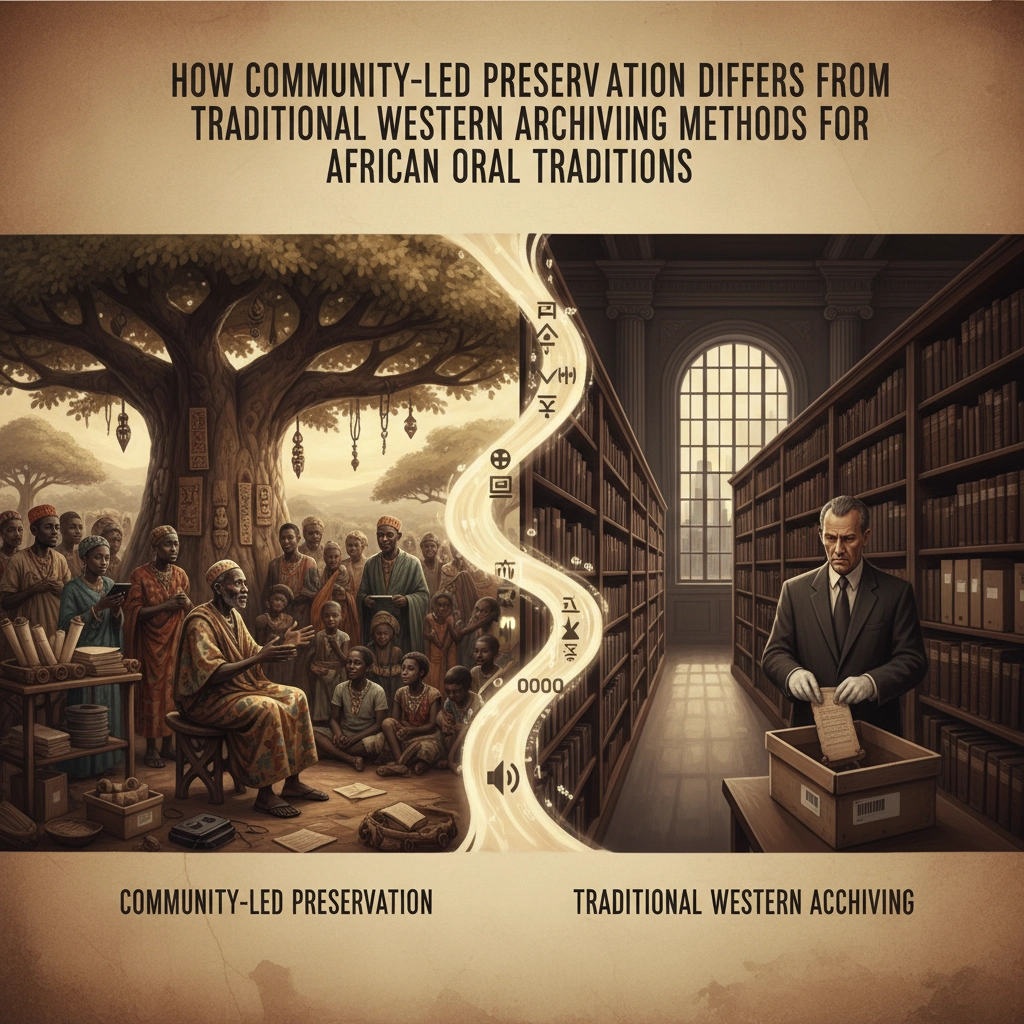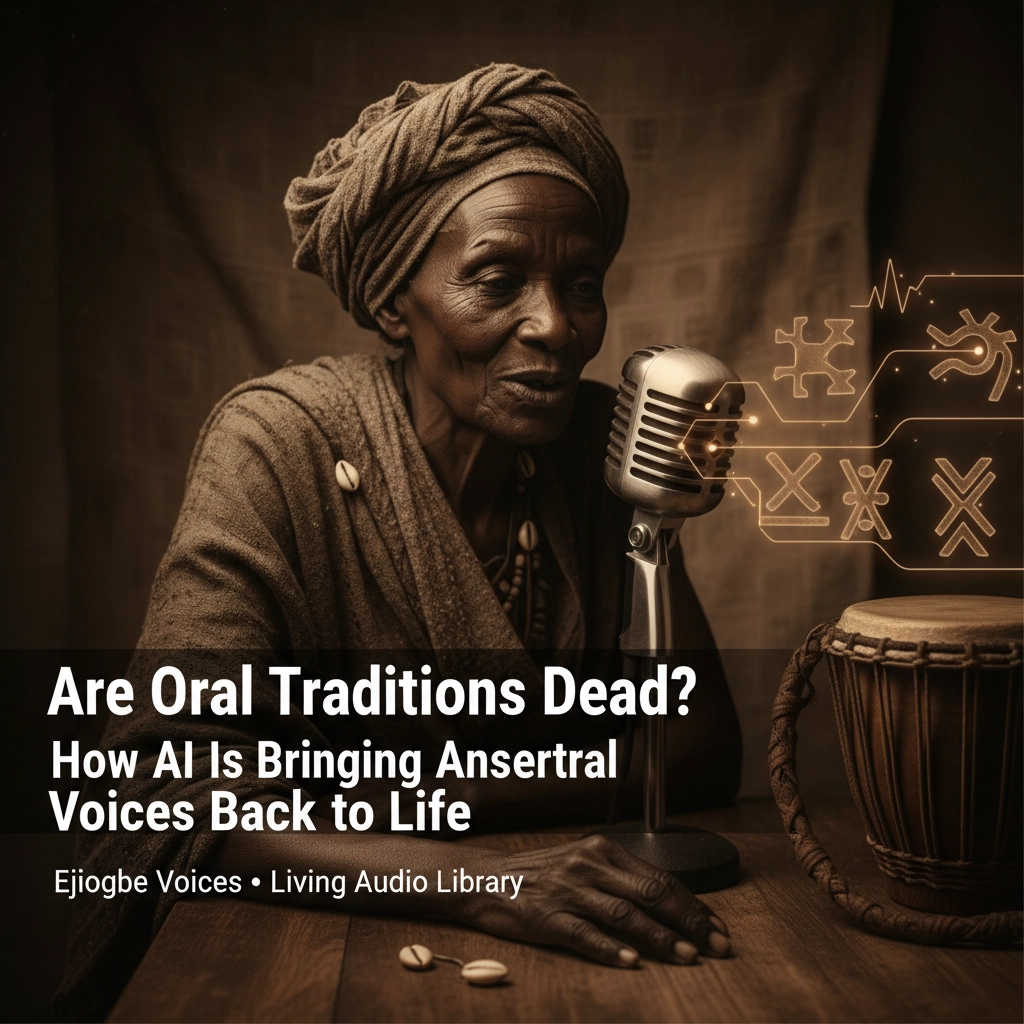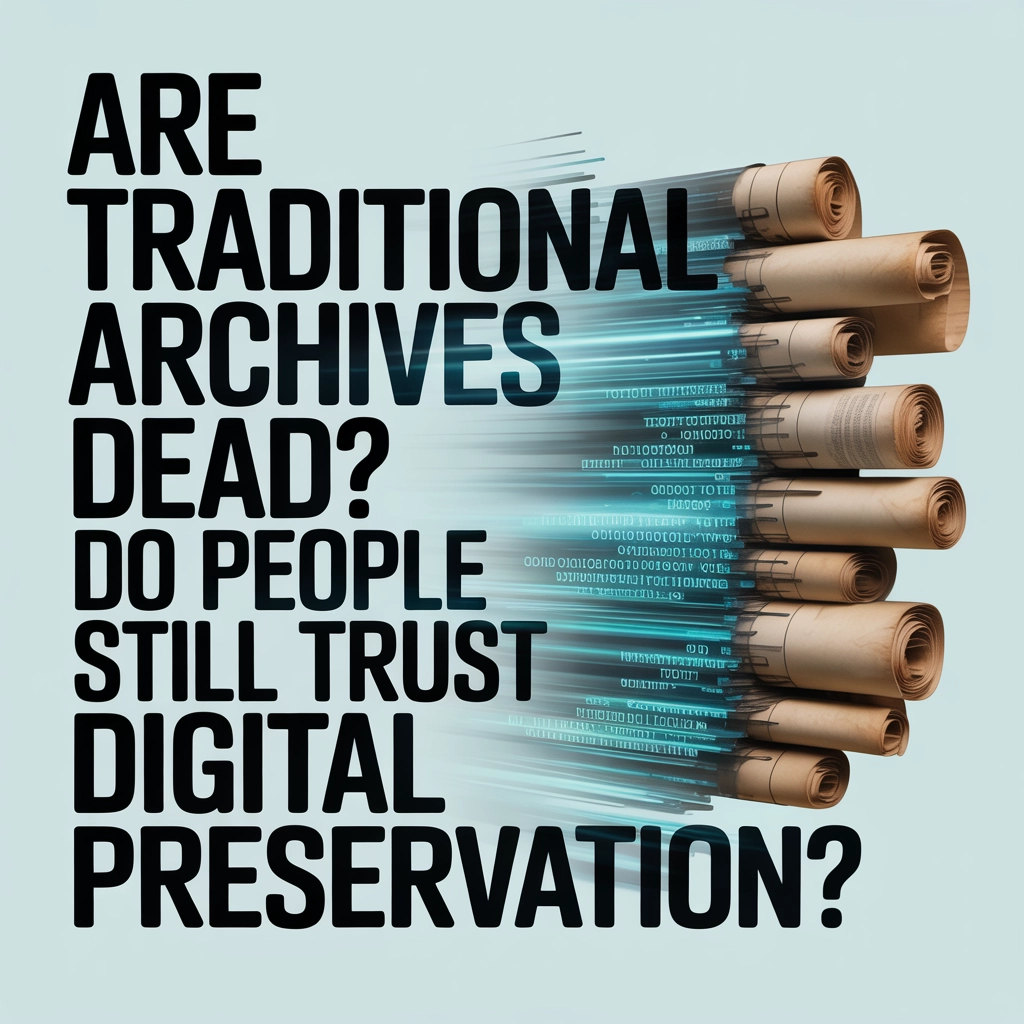The preservation of African oral traditions stands at a crossroads between two fundamentally different philosophies: the community-led approach that has sustained our ancestral voices for millennia, and the institutional Western archiving methods that seek to document and catalog our heritage. Understanding these differences is crucial for safeguarding the wisdom, stories, and cultural knowledge that connect generations and preserve the essence of who we are as communities.
The Living Heritage of Community-Led Preservation
In African communities, oral traditions have never been merely stories to be stored away: they are living, breathing expressions of our collective wisdom. Community-led preservation operates on the principle that cultural knowledge belongs to the people and thrives through active participation and continuous transmission.
The Circle of Wisdom Keepers
At the heart of community-led preservation are our elders: the griots, storytellers, and knowledge holders who carry centuries of accumulated wisdom in their voices. These community specialists understand that preservation happens not through documentation alone, but through the sacred act of sharing. When an elder speaks, the community gathers, creating a participatory space where stories unfold, lessons are learned, and cultural values are reinforced.
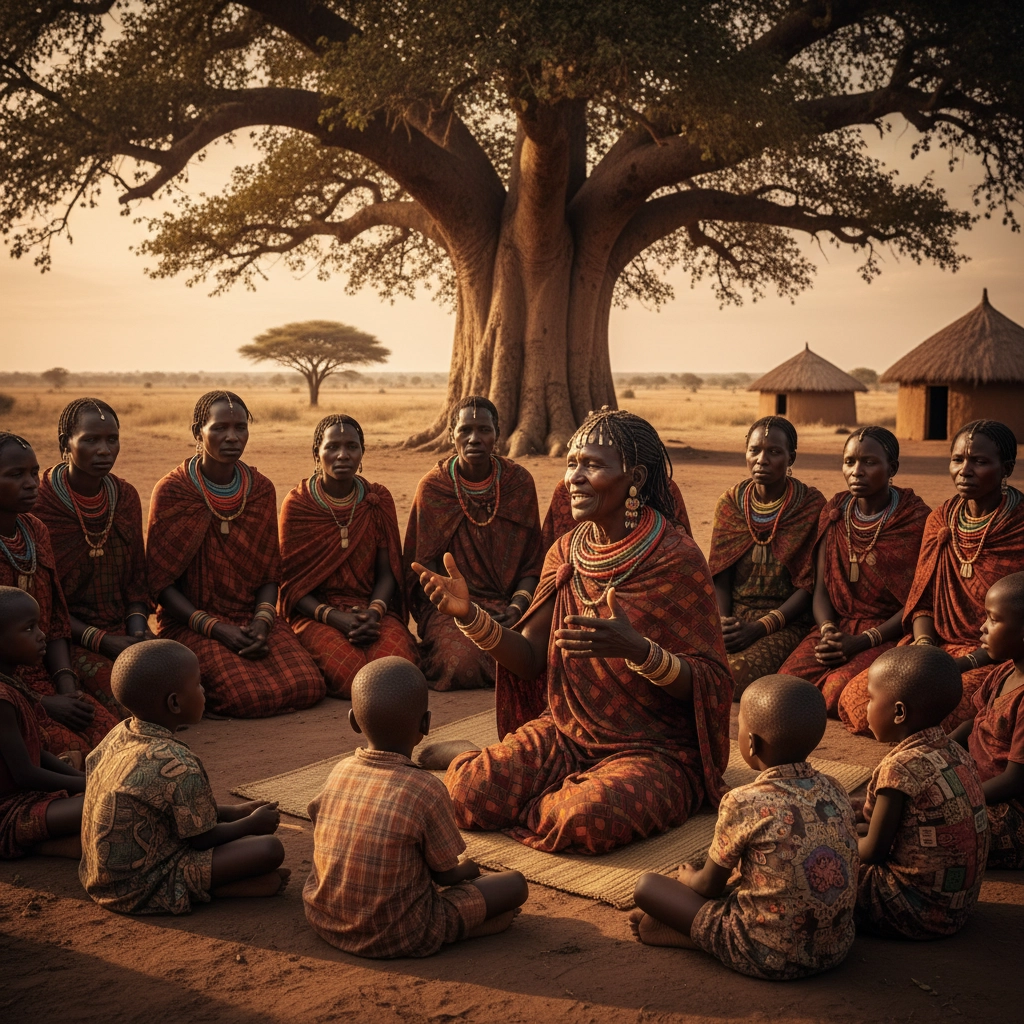
Dynamic and Responsive Traditions
Unlike static records, community-led preservation allows our traditions to breathe and evolve. Stories adapt to contemporary contexts while maintaining their core spiritual and moral teachings. A Yoruba folktale told in Lagos today carries the same essential wisdom as when shared in ancient Ife, yet it resonates with modern realities and challenges. This adaptability ensures our heritage remains relevant and meaningful to each new generation.
The community approach embraces collective ownership: no single institution owns our stories. Instead, they belong to all of us, shared freely within the community circle, passed down through family lines, and enriched by each telling. This democratic approach to cultural preservation ensures that multiple voices and perspectives contribute to the ongoing narrative of our heritage.
The Institutional Framework of Western Archiving
Traditional Western archiving methods approach cultural preservation through a fundamentally different lens: one focused on documentation, standardization, and institutional control. While these methods offer valuable preservation tools, they represent a significant departure from how African communities have historically maintained their cultural knowledge.
Structured Documentation Systems
Western archiving emphasizes creating permanent, standardized records that can be cataloged, stored, and accessed through formal institutional systems. This approach treats oral traditions as information to be extracted from their cultural context and converted into documented formats: transcripts, recordings, and digital files organized according to archival standards.
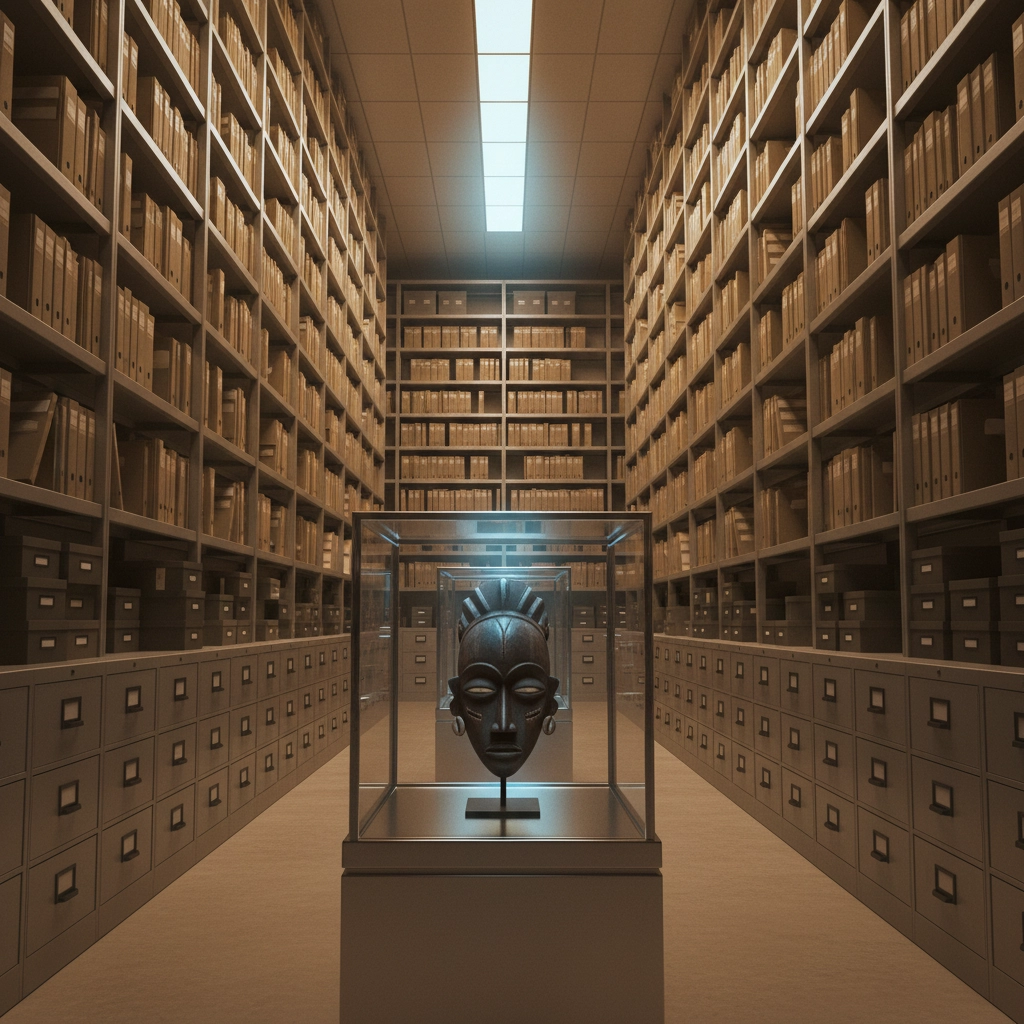
Expert-Mediated Preservation
In Western archiving systems, professional archivists and institutions become the primary custodians of cultural knowledge. Access is mediated through formal protocols, and preservation decisions are often made by experts rather than community members. While this approach can provide important protection and documentation capabilities, it creates distance between the community and their own cultural heritage.
Where the Paths Diverge: Key Differences
The contrast between these two approaches reveals fundamental differences in how we understand ownership, access, and the very nature of cultural preservation.
Ownership and Control
Community-led preservation maintains that our stories belong to us: collectively owned by the communities that created and sustained them. Elders and cultural specialists serve as trusted custodians, but the heritage remains embedded within community life. Western archiving, conversely, often results in institutional custody, where cultural materials become the responsibility of universities, museums, or government archives.
The Nature of Knowledge Transmission
In our communities, knowledge flows through relationships: from grandparent to grandchild, elder to youth, storyteller to audience. This relational transmission ensures that cultural knowledge remains connected to its spiritual and social context. Western archiving focuses on creating permanent records that can be accessed independently of these relationships, often severing the knowledge from its cultural roots.
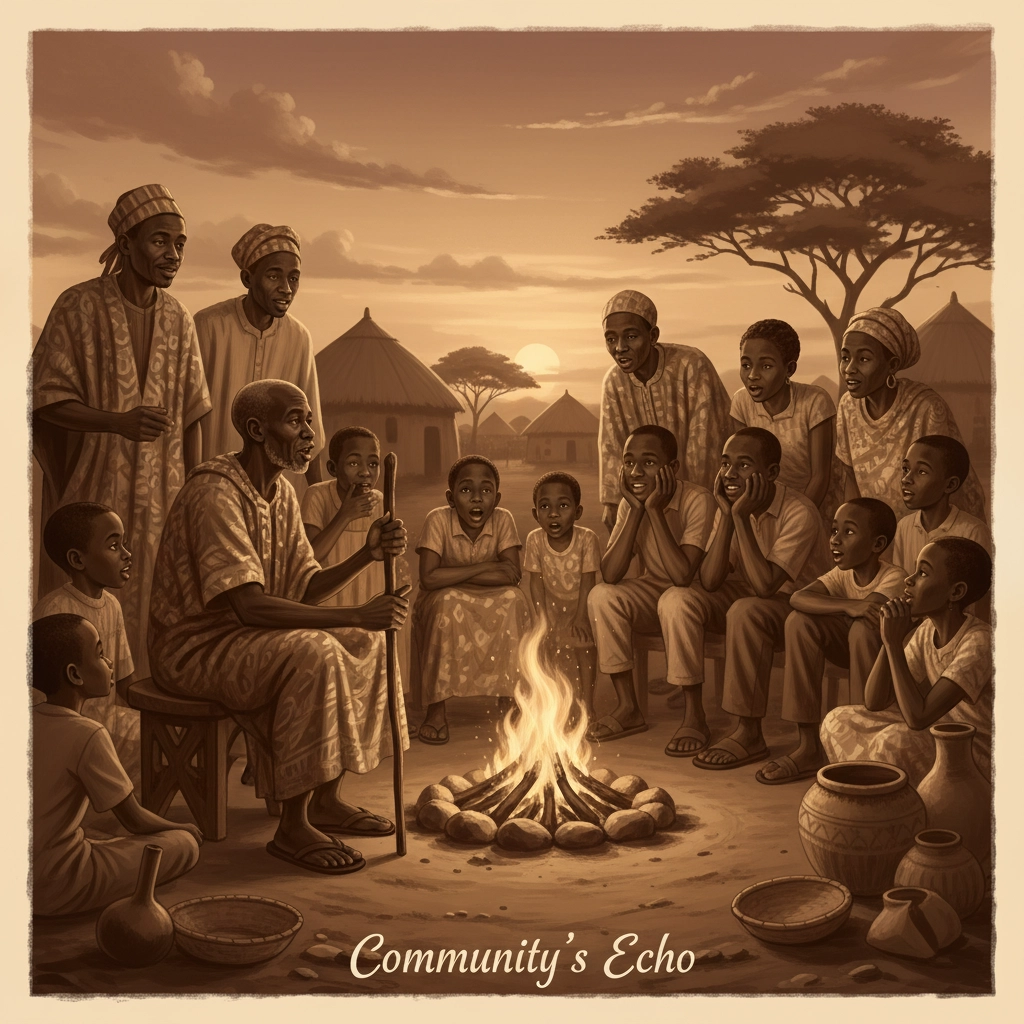
Participation and Community Engagement
Community-led preservation thrives on active participation. Story circles, ceremonial gatherings, and teaching moments create spaces where everyone: from children to elders: contributes to the preservation process. This participatory approach strengthens community bonds while ensuring cultural continuity. Traditional archiving methods, while valuable for documentation, typically involve passive consumption of recorded materials rather than active community engagement.
The Wisdom Keepers: Guardians of Living Heritage
Our elders represent more than repositories of information: they are the living bridges connecting past, present, and future. In community-led preservation, these wisdom keepers understand that their role extends beyond simply recounting stories. They contextualize knowledge, adapt teachings to contemporary challenges, and ensure that cultural transmission serves the spiritual and practical needs of the community.
Regional Diversity and Specialization
Each region of Africa maintains its own rich oral traditions, with elders specializing in different aspects of cultural knowledge. A griot in Senegal carries different wisdom than a praise singer in South Africa or a traditional historian in Ethiopia. Community-led preservation honors this diversity, recognizing that our heritage cannot be reduced to universal categories or standardized formats.
The knowledge held by our elders often includes information that never appears in formal archives: traditional ecological wisdom, medicinal knowledge, spiritual practices, and community-specific histories that connect us to our ancestral lands and identities.
Bridging Worlds: Modern Integration Approaches
Today's preservation efforts increasingly recognize the need to honor community-led approaches while leveraging modern tools for broader documentation and protection. Organizations working with African communities now understand that successful preservation requires collaboration, not extraction.
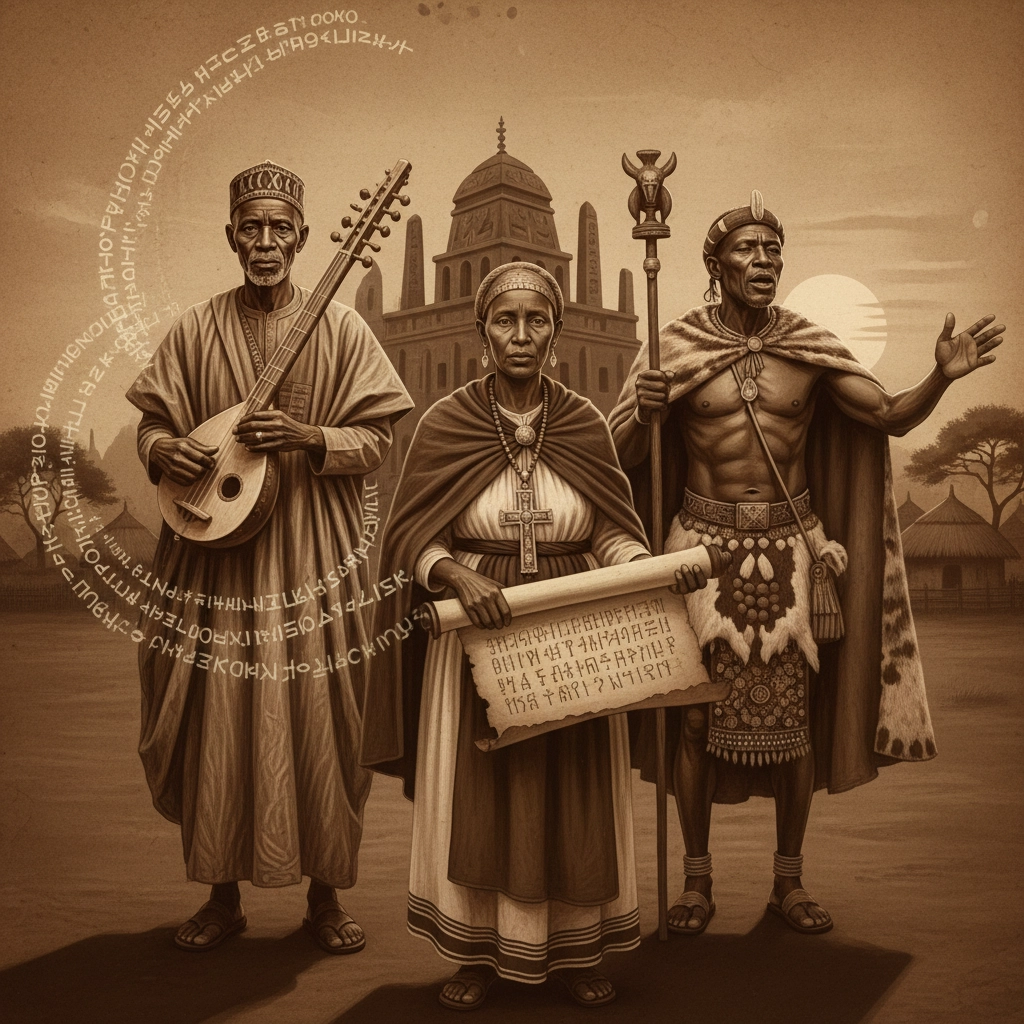
Technology as a Tool, Not a Master
Modern community-led preservation initiatives use technology to enhance rather than replace traditional transmission methods. Digital platforms can amplify elder voices, connect diaspora communities with their homeland traditions, and create accessible archives that remain under community control. The key difference lies in who controls the technology and how it serves community needs.
Maintaining Cultural Protocols
Effective integration approaches respect traditional protocols around sacred knowledge, ensuring that certain stories remain within appropriate community contexts while making other materials more broadly accessible. This nuanced approach recognizes that not all cultural knowledge should be universally available: some wisdom requires initiation, spiritual preparation, or community standing.
Preserving Our Future Through Community Leadership
As we navigate an increasingly connected world, the importance of community-led preservation becomes even more critical. Our oral traditions offer wisdom that institutional archives cannot capture: the relationships, contexts, and spiritual dimensions that make our heritage truly alive.
The future of African oral tradition preservation lies not in choosing between community-led and institutional approaches, but in ensuring that community voices remain central to any preservation effort. When our elders speak, when our children listen, when our communities gather to share wisdom: we are not just preserving the past, we are actively creating the future of our cultural heritage.
This living preservation ensures that our ancestral voices continue to guide, teach, and inspire, maintaining their power to transform lives and strengthen communities across generations. In honoring both the wisdom of our ancestors and the needs of our descendants, we create a preservation approach that truly serves the continuity of African heritage in all its magnificent diversity.

